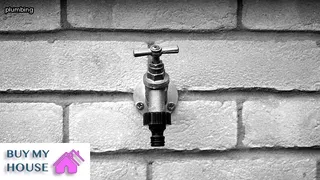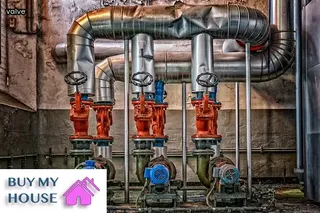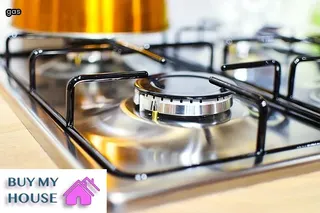Water heaters can explode due to several common causes. If a pipe bursts, it could be the result of a pressure valve malfunction or an accumulation of sediment inside the tank.
Loose connections in the water supply lines can also cause pipes to burst, as can corrosion and rust on the walls of the tank. Inadequate maintenance can also lead to a water heater explosion, as well as faulty installation.
Additionally, if the thermostat is set too high, it can create overheating that will put excessive stress on the tank, leading to an explosion. The key is to identify these signs before an accident occurs and take appropriate steps for prevention.

Warning signs of an impending hot water heater explosion can include odd noises, a sharp increase in water temperature or pressure, and the presence of leaking or spraying water from the system.
Homeowners should be aware that if any of these signs are present, their hot water heating system could be at risk for bursting.
If a hot water heater pipe does burst, it is important to act quickly and shut off the power to the system as soon as possible in order to prevent further damage.
It is also essential to understand the appropriate steps necessary to properly repair a burst pipe so that homeowners can take appropriate action when needed.
When it comes to identifying potential risks from an old water heater, it is important to take a few safety precautions before attempting to repair any burst hot water pipes. To start, inspect the area around the hot water heater for any signs of corrosion or leaks, as these could indicate that the pipes are weakened and at risk of bursting.
Additionally, look out for any rust or discoloration on the surface of the pipes which may suggest that they are corroding internally. Finally, check for any loose fittings or connections which could be causing pressure build-up in the system and leading to a burst pipe.
Taking these steps will help you determine whether your existing water heater is safe to repair or if you need to replace it altogether.

A leaking hot water heater can be a dangerous hazard, especially if the pipe is ruptured or burst. When this occurs, it can cause significant damage to your home and property as water pours out of the broken pipe.
In extreme cases, it could even cause severe injury due to boiling hot water being released at high pressure. It is important that any burst pipes are fixed immediately in order to prevent further damage and danger.
A step-by-step guide on how to repair a burst hot water heater pipe can help you to do this properly and safely.
Regular maintenance and proper care of your hot water heater can help prevent problems and save money. Inspecting the unit for signs of corrosion, cracks or leaks on a regular basis is essential to maintaining the integrity of your pipes.
Check the temperature and pressure relief valve, as well as the anode rod, to ensure they are in good working condition. If any of these components seem worn or damaged, it’s best to have them replaced immediately.
Cleaning sediment from the tank and flushing out the system every year will help keep your hot water heater running efficiently. It’s also a good idea to replace the sacrificial anode rod every three years or so.
Finally, make sure all connections are tight and that there is adequate insulation around your pipes to reduce heat loss. Taking these steps can help extend the life of your hot water heater and minimize costly repairs in the future.

When it comes to handling and maintaining a hot water heater, safety should be the top priority. Taking the proper precautions and following best practices can help prevent serious injury or damage to the environment.
First and foremost, make sure that the area is well ventilated before beginning any repair work on a hot water heater. It's also important to wear protective gear, such as goggles and gloves, while working with water heaters.
Finally, always read the manufacturer's instructions carefully before attempting any repairs or maintenance tasks on a hot water heater. It is important to keep up with regular maintenance in order to ensure that it is functioning properly and safely.
Following these tips can help you enjoy safe and efficient use of your hot water heater for many years to come.
One of the best ways to reduce the risk of a hot water heater pipe bursting due to overheating is to regularly check and maintain the temperature. Keeping the temperature below 140 degrees Fahrenheit can help prevent it from reaching dangerously high levels.
Additionally, it’s important to inspect the pipes for any signs of corrosion or wear that could cause them to burst. Regularly checking for leaks and replacing worn parts will help ensure that your hot water heater pipes are in good condition.
It’s also recommended to use a pressure relief valve on your hot water heater, as this will reduce stress on the system and help protect against bursting. Finally, installing an expansion tank in your system can provide extra protection against any unexpected increases in pressure.
Taking these preventive measures can significantly reduce the chances of your hot water heater pipes bursting due to overheating.

When it comes to repairing a burst hot water heater pipe, understanding the various types of burst protection available is key. Depending on the size and location of the pipe, you may need to install a pressure relief valve or thermal expansion tank.
Pressure relief valves act as safety features that open when excess pressure builds up in the system, while thermal expansion tanks limit the amount of pressure in the piping system. Additionally, adjusting the temperature and pressure settings on your hot water heater can help prevent further damage from occurring; these settings should be checked regularly for any changes.
Finally, installing a shut off valve is an effective way to quickly stop water flow if a burst occurs; this will also reduce the amount of water that needs to be cleaned up afterwards. Knowing which type of burst protection best suits your situation can save time and money in repairs.
A broken hot water heater can cause significant damage to your home and lead to costly repairs. Knowing the signs that your hot water heater is failing can help you take proactive steps to repair it before a pipe burst occurs.
Some of these signs include a decrease in hot water capacity, rust-colored water coming out of the tap, or strange noises coming from the tank. You may also notice an increase in your energy bills associated with running the hot water heater.
If any of these symptoms are present, it's likely time to inspect the hot water heater and repair any broken pipes before they worsen and cause further damage.

Troubleshooting a broken hot water heater can be a daunting task, but with the right tools and knowledge it can be done. Before starting any repairs, it's important to identify the source of the problem.
Common causes of a burst hot water heater pipe include corrosion, poor maintenance, or freezing temperatures. If corrosion is the cause, replace all corroded pipes to ensure that the problem doesn't recur.
Poor maintenance often leads to sediment buildup in the pipes, so make sure to flush out any debris before repairing anything else. Lastly, if freezing temperatures are responsible for the burst pipe, insulate all exposed piping and check for any other potential weak spots in your home's insulation before continuing with repairs.
Once you've identified the source of the problem and made necessary changes, you can use this step-by-step guide to repair a burst hot water heater pipe: shut off power and water supply; locate the leak; cut out damaged sections; fit new piping; solder pipes together; reconnect power and turn on water supply. Following these steps will help you successfully repair a broken hot water heater pipe and restore your hot water supply in no time!.
When a hot water heater pipe bursts, it can cause serious damage to your home and your wallet. Water damage from a broken pipe can lead to structural issues in the walls and ceilings of your home and may even require replacement of furniture and other personal belongings damaged by moisture.
Additionally, if left unfixed for too long, a burst hot water heater pipe can lead to mold growth which poses a health risk to your family or tenants. Repairing a burst hot water heater pipe is essential not only for preventing further destruction but also for restoring normal operation of your heating system.
This step-by-step guide will help you understand how to go about repairing a burst hot water heater pipe quickly, safely, and cost-effectively.

When it comes to repairing a burst hot water heater pipe, the best course of action is to seek professional help if you suspect that the heater is malfunctioning. It is important to take safety into consideration when dealing with a broken hot water heater, as any delay in repairs could lead to further damage or hazardous conditions.
A qualified plumbing technician can assess the problem and provide an effective repair solution. He or she will have the necessary tools and expertise required for such a task and can ensure that your hot water heater is functioning properly once more.
Be sure to ask any questions you may have about the process so that you can be informed and confident in the repair work being done on your hot water heater.
Before replacing a hot water heater, there are several questions you should ask yourself. First, is the current model adequate for your needs? Measure the space available and compare that to the size of the new heater you are considering.
You'll also want to consider whether a gas or electric option is best for you. Additionally, what type of fuel source do you have access to? If you choose a gas heater, make sure you have natural gas or propane available.
Lastly, think about how much energy efficiency you would like in your new heater. Determining all these factors ahead of time will ensure that you get the most out of your replacement hot water heater.

Upgrading your home’s hot water heater can be beneficial for a number of reasons. Not only does a better quality hot water heater make your home more comfortable and efficient, but it can also save you money in the long run.
By upgrading to a newer model, you will have access to better technology that can help you save on energy costs while providing superior performance. Additionally, a new hot water heater may allow you to install additional safety features such as temperature regulation, fire protection, and pressure switches that can reduce the risk of a burst pipe or other plumbing problems.
The improved efficiency of newer models can also reduce the amount of time it takes for hot water to reach your taps, which is especially important if you have an older system. Investing in an upgraded hot water heater is an excellent way to increase the value and comfort of your home while also protecting yourself from costly repairs like fixing a burst pipe.
If you're looking for an alternative to the standard tank-style hot water heater, there are several options available that can provide a more efficient and cost-effective way to heat your water. Tankless water heaters are one type of alternative that heats water on demand, meaning it only heats up when you turn on the tap.
This can save you money on energy bills since only the amount of water required is heated. Heat pump systems transfer heat from the air or ground into usable hot water, and solar hot water systems use energy from the sun to warm your water supply.
If repairing your burst pipe is not feasible due to cost or time constraints, these alternatives may be worth considering for your home.

Identifying a broken water heater can be difficult, but there are several signs to look for that can help you diagnose the issue. If the hot water pressure is lower than usual or if it stops working altogether, this could be an indication of a broken pipe.
Additionally, if you see any visible signs of dripping or wet spots around the tank, this could also mean that there is a leak in the system. If you hear strange noises coming from your water heater such as banging or gurgling, this may indicate that the pipes have burst.
Finally, if you notice a musty smell coming from your water heater, this could mean that it has become damaged and needs to be repaired immediately.
When a hot water heater pipe bursts, it can be a very messy and potentially dangerous situation. Cleanup is essential after an explosion to ensure safety and prevent future damage.
It is important to wear protective gear while cleaning up the mess, such as gloves, long pants, closed-toe shoes, goggles, and a respirator mask. Start by using heavy-duty towels to mop up any standing liquid.
After all of the visible liquid has been mopped up, use a wet/dry vacuum to remove any remaining moisture from carpets or other absorbent surfaces. Dispose of the towels and vacuum contents in sealed plastic bags for proper disposal.
Additionally, use disinfectant cleaner on all surfaces that may have come into contact with the hot water heater explosion debris in order to kill any bacteria or germs that may have been spread during the burst. Finally, thoroughly inspect the area for signs of further damage before returning it to its original function.

Poor maintenance can cause a hot water heater to explode. Without proper care, sediment and corrosion can accumulate in the tank, reducing its efficiency and eventually leading to an explosion.
Overheating can also be caused by blocked or malfunctioning pipes, which can lead to a burst pipe and subsequent explosion. Regular inspections of the system are necessary to identify any potential problems that could compromise its integrity.
Issues such as weak connections, loose valves, or faulty wiring should be addressed immediately in order to avoid an unexpected explosion. Additionally, checking for signs of rust is essential for preventing possible damage that can occur due to corrosion.
Taking the appropriate steps to ensure proper maintenance will help reduce the risk of a hot water heater explosion due to poor care.
Dealing with mold or mildew after a water heater explosion can be tricky. It's important to take the necessary steps to identify and remove the contaminated areas in order to prevent further damage.
One of the first things you should do is inspect your home for any visible signs of mold or mildew growth. Make sure to look in dark, damp places such as basements and bathrooms.
If you notice any suspicious spots, use a damp cloth to wipe away the area and check for any discoloration that could indicate mold or mildew growth. You'll also want to take note of any musty odors, which could be a sign that there is an underlying problem.
Once you have identified the affected areas, it's time to begin cleaning them up. Use a solution of equal parts bleach and water to kill off any existing mold or mildew colonies before they have the chance to spread further.
Be sure to wear protective clothing when dealing with these hazardous materials and ventilate the area well during this process. Finally, make sure all surfaces are thoroughly dried before repainting or sealing them with a waterproof sealant in order to prevent future contamination from occurring.
If you experience a burst hot water heater pipe, it is important to act quickly. Start by turning off the water supply to your home and the electricity or gas that powers your water heater.
If it’s safe to do so, open any faucets in your home so that the pressure in the pipes can be released and minimize any additional damage. Next, determine what type of material the broken pipe is made from; this will determine what tools and supplies are needed for repair.
Once you have gathered all necessary materials, put on safety goggles and gloves before beginning repairs. Depending on the severity of the break, you may need to replace part or all of the damaged pipe.
If possible, try patching instead of replacing – use epoxy putty or a clamp-on patch depending on the material of your pipes. Finally, turn back on water supply and test for any leaks before closing up any access panels you may have opened to complete repairs.
Taking these steps will ensure a safe and successful repair job.

A hot water heater pipe can burst due to many causes, such as corrosion, improper installation, freezing temperatures, and high water pressure. Corrosion of the pipe is a common cause of failure, as it wears away the protective layer that keeps the pipe strong.
Improper installation of the hot water heater can also lead to leaks in the piping system and eventually to complete bursting of a pipe. Extreme cold weather can cause an expansion of the pipes which over time can weaken them and lead to bursting.
Lastly, high levels of water pressure in the system can lead to increased strain on the pipes and eventually causing them to burst. Knowing what caused your hot water heater pipe to burst is essential for understanding how best to repair it.
Yes, it is possible to fix a burst water heater pipe. A step-by-step guide can help you repair the pipe quickly and without professional assistance.
The first step is to turn off the main water supply as soon as you notice a leak or hear a hissing sound from the hot water heater. Then, drain any remaining hot water from the unit by opening up the pressure relief valve.
Next, use a wrench to carefully remove the damaged section of pipe connected to the hot water heater. Once that is done, measure and cut a new piece of pipe according to the exact length of the removed section.
Finally, attach the new pipe with fittings such as nipples and couplings then test for leaks before restoring power. With this step-by-step guide, you can easily fix a burst hot water heater pipe yourself!.
Using Flex Seal on a hot water heater pipe is not recommended as it is not designed for use with water. Instead, homeowners should repair burst hot water heater pipes using the step-by-step guide below.
First turn off the power supply to the hot water heater and then shut off the main water valve. Next, locate the source of the leak and drain the tank to reduce pressure.
Use an adjustable wrench to loosen and remove any damaged pipe sections and then use a hacksaw to cut new length of pipe that fits into place. Secure the new pipe in place with plumbing tape then turn on the main valve to refill the tank before turning on the power supply again.
Following these steps will ensure that your burst hot water heater pipe is properly repaired without risking further damage or leaking by using Flex Seal.
A: A plumber should immediately shut off the water supply to the apartment and assess the damage. If necessary, they may need to replace any burst pipes and repair any additional damage before turning the water back on.
A: A claims adjuster will assess the extent of the damage caused by the hot water heater pipe burst and decide if it is covered by your insurance policy. They will also work with you to arrange for repairs and replacement of any damaged property.